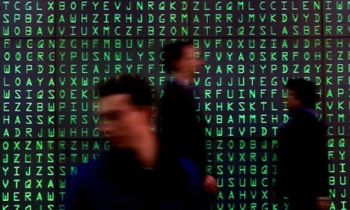The free newspaper business in Israel is about to become a battleground as it appears that no less than three free Hebrew dailies will begin publishing within the next few weeks.
Joining the incumbent Israeli, published by the businessman Shlomo Ben Tzvi, will be publications from American billionaire Sheldon Adelson; a joint team of Eli Azur, the owner of The Jerusalem Post, and Dudi Weissman, owner of Blue Square supermarket chain and the Dor Alon energy group; and Arnon Mozes, the publisher of Yediot Aharonot, Israel's largest daily newspaper.
These papers are all part of the popular international trend of free newspapers distributed in subway and bus stations designed to pass the travel time while gently presenting the major events of the day.
In Israel, however, the market for these types of papers is not yet very developed.
"Right now it is too early to tell if all of these papers will survive," said Gadi Wolfsfeld, a professor of communications and political science at Hebrew University. "But part of the problem is that, unlike in New York and London, where these papers have really caught on due to the targeting of subway passengers, this country has no real subway system."
Israeli, which was launched in 2006 but shut down earlier this year for a short time following a rift between Ben Tzvi and Adelson stemming from a suspicion that Ben Tzvi was using Israeli funds for other projects, prints 180,000 daily copies and is distributed at gas and train stations.
Adelson will distribute his Yisrael Hayom, to be published by his company NewsCo, to mailboxes. He is reported to be aiming for a circulation of 300,000.
Meanwhile, the offerings from the Azur-Weissman project - the paper is to be titled Metro - with a circulation target of 250,000, and from Yediot's Mozes, with a circulation goal of 300,000, will be passed out at various points of distribution, such as supermarkets.
The total free circulation will, according to these estimates, rise to more than one million in a market where paid circulation in 2006 was only 750,000.
"It's going to be a war," predicted Golan Bar Yosef, the editor of the Azur-Weissman team's Metro. "We have an advantage though and will not be directly competing with the other newspapers because we are going to publish in the afternoon instead of in the morning," he explained to the Post.
Bar Yosef added that while his paper's 10:30 a.m. deadline means a race against time to cover that day's top breaking news stories, Metro will be providing readers with news that they won't get anywhere else.
"In order to last, these papers are going to need to produce a high-quality paper," said Wolfsfeld. "To accomplish this, they are going to need to put in a lot of time, money, talent and resources - which it is not clear if they are going to be able to accomplish. However, I do assume that it will cut into some of the market share, enough to maybe hurt Ma'ariv, but not enough to do any significant damage to Yediot."
According to Mozes's associates, he is determined to enter the market so as not to allow Adelson and Weissman-Azur to dominate.
When asked about plans to launch the free paper, a Yediot representative denied any knowledge of such a move.
What is known, said Wolfsfeld, is that these papers need to generate enough of a buzz, and do it rather quickly, in order to attract advertisers.
"At the beginning, prices for running advertisements are going to be incredibly low. Once the papers can prove that they have established a readership, they will be able to raise prices," he said.
Adelson's Yisrael Hayom is due to begin publishing next week; Metro plans for an early August release; Mozes's publication has not yet been finalized.
"I think it will be very interesting to see what happens," said Wolfsfeld.









